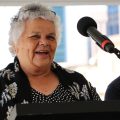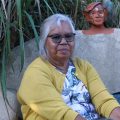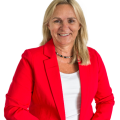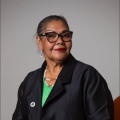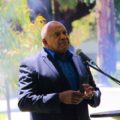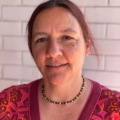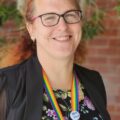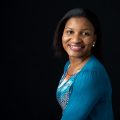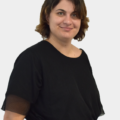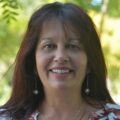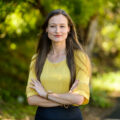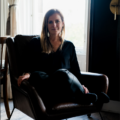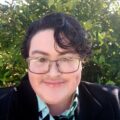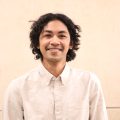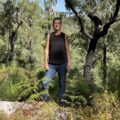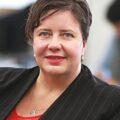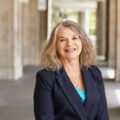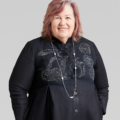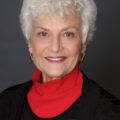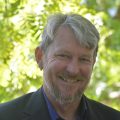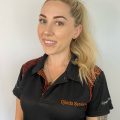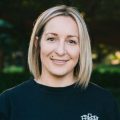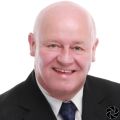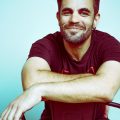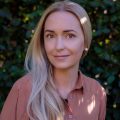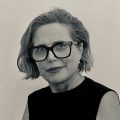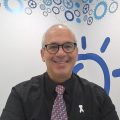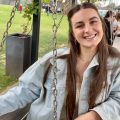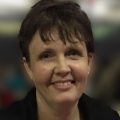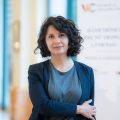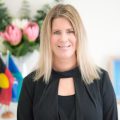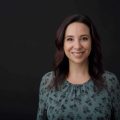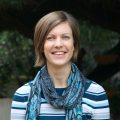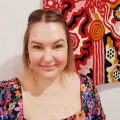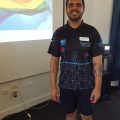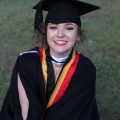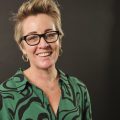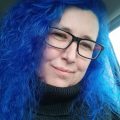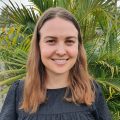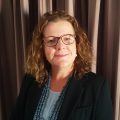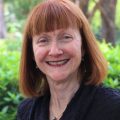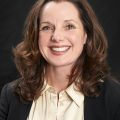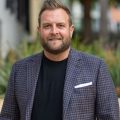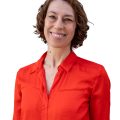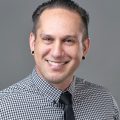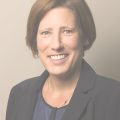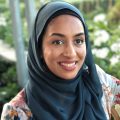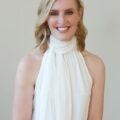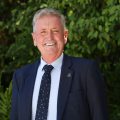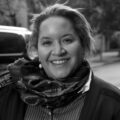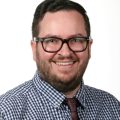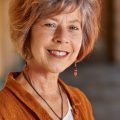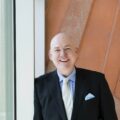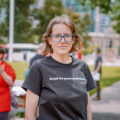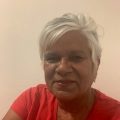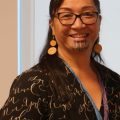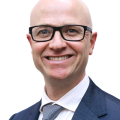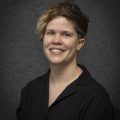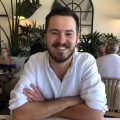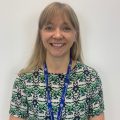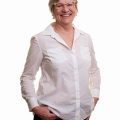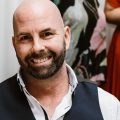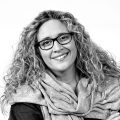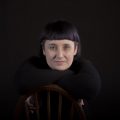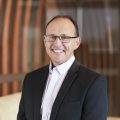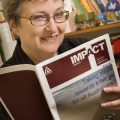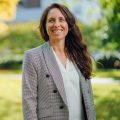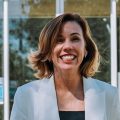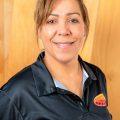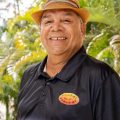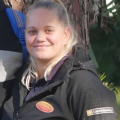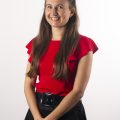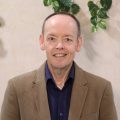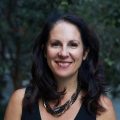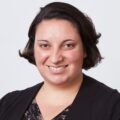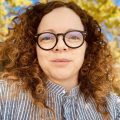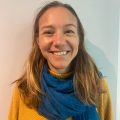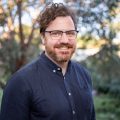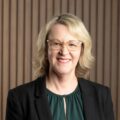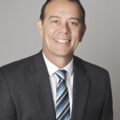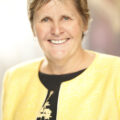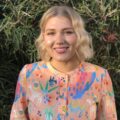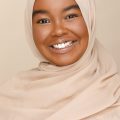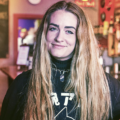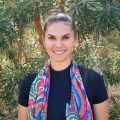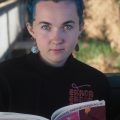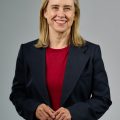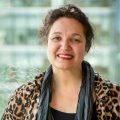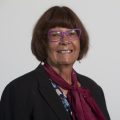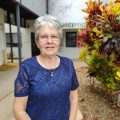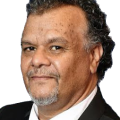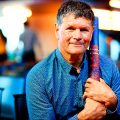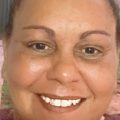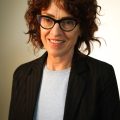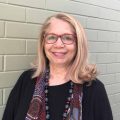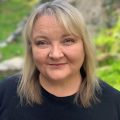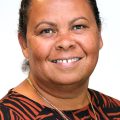The program to-date for Resilient, Strong, Brave: Collective Power of Community, including presenter bios can be navigated below. Panelist information to be announced soon.
Aunty Millie Penny and Aunty Charmaine Pell welcome all guests to Noongar Boodja. A Movement for First Nations Gender Justice and Equality June’s keynote will highlight the major findings, recommendations and next steps of the landmark Wiyi Yani U Thangani (Women’s Voices) multi-year systemic change project. Since inception in 2017, the projects commitment has been to elevate the voices of First Nations women and girls knowing they hold the knowledges and lived experiences to deliver transformative social and economic change. The keynote will outline the fundamental principles and processes for how we can walk forward together to create the systems and thriving societies that all Australians want. To design and deliver services we must listen and learn from people interacting with our services each and every day. This panel places people with lived and living experiences front and centre of our discussions at the Conference. Facilitated by Louise Giolitto. Working towards a social security redesign: what will it take? This session will consider why we need a redesign of our social security system and present 5 bold changes needed to make it happen. Whilst the Royal Commission into Robodebt has exposed how cruel the social security system can be, people living and working in the social security space know that these issues have been evident for some time. This session will consider some of these enduring issues and present options for a redesign fit for now and the future. An economy for resilient, strong, brave communities This input will consider why communities need economic change – and what that economic change needs to entail. It will look at the role of government and then explore how change happens and what community power brings to efforts to transform economies so they are more humane, and more sustainable. The community sector is integral in driving social change. Our panel will share their activism and advocacy outcomes and inspire you to effectively mobilise people, organisations and communities to create meaningful and lasting change. Facilitated by Tim Grey-Smith. Early childhood development plays a critical role in outcomes and wellbeing throughout life. Our panel brings together leading research experts and frontline child and family services to understand how we can best measure child wellbeing to drive investment in policies and services that will make the greatest difference to young lives and the future of our community. Facilitated by Chris Twomey. 20 minute presentations followed by a 10 minute Q&A after each presentation. Engagement in Multicultural Australia: Changing the language to change outcomes The pandemic exposed challenges in engaging with culturally and linguistically diverse communities during crises. Current community engagement initiatives often miss out on less visible groups due to accessibility and response rates. Language is a powerful tool to address engagement barriers and shift from “us versus them” language to inclusive language. By changing language, engagement outcomes can improve. Presented by Karen Quigley Sosa, Umbrella Multicultural Community Care Service Inc Working for Better Outcomes – Djinda Service This presentation will use a series of case studies to demonstrate the advocacy and support provided by Djinda Service and the outcomes achieved for women and children. It will outline our journeys with Aboriginal and Torres Strait Islander women and children, what they have taught us and what we have learnt, allowing us to share this with the broader community sector. Presented by Gemma Spee, Relationships Australia WA The Collective Power of Community Advocacy in Ending Homelessness Ending homelessness requires quality data, helping each local community to understand the gaps and barriers faced by individuals and families experiencing homelessness. At the heart of this data are lived experience stories, providing critical information about the range of houses and supports required, to make their experiences of homelessness rare, brief and a one-time occurrence. Presented by Michala McMahon and Allan ‘Big Al’ Connolly, Western Australian Alliance To End Homelessness 15 minute presentations followed by a 30 minute panel with all presenters. Through Different Eyes ‘Through different eyes’ seeks to increase understanding of the challenges that sit alongside being an Aboriginal person working in the social sector and what it might look like to provide supportive and equitable leadership to Aboriginal staff, how organisations can advance Aboriginal leaders and what needs to be true to flourish. Presented by Jarred Wall and Carina Cooke, AnglicareWA Investing in the Business of Relationships Strong relationships underpin achieving positive social outcomes. As such creating conditions that allow relationships to flourish needs to be a purposeful endeavour in and of itself. This presentation is a heart-warming testament to what can happen when funders take the plunge and invest in relationship-based partnerships to tackle the toughest of social challenges. Presented by Leigh Sinclair, Imagined Futures Interrupting before escalating – Choose Change FDVA Program The Choose Change program is one of the range of secondary prevention strategies delivered by Communicare. The program commenced in September 2020 in collaboration with the Family and Domestic Violence Response Team (FDVRT) of the Armadale Police District. It meets a gap in the Armadale locality engaging people who use violence and abuse, with a 15.6% reduction in police interventions from September 2020 to February 2022 has been noted. While not solely attributable to the program, police representatives consider Choose Change to have made a significant contribution. Presented by Tucker Christou, Communicare Community Wellbeing Plans – Empowering Communities to enhance resilience Community Wellbeing Plans (CWPs) were first developed in the Wheatbelt & have now been replicated across the state. There are currently 6 active CWPs in the Wheatbelt. CWPs are place-based 2-3 year strategic plans developed by local stakeholders that improve individual, family and community safety through collaborative harm minimisation strategies. Presented by Jo Woodruff and Jessica Daniels, Holyoake Wheatbelt CADS 15 minute presentations followed by a 30 minute panel with all presenters. ARC Centre of Excellence for the Elimination of Violence Against Women (CEVAW) This presentation will talk to the ARC Centre of Excellence for the Elimination of Violence Against Women and its research agenda aimed at transforming our understanding of the problem of violence against women. CEVAW will examine the structural drivers that cause violence against women, and pioneer new, evidence-based approaches to improve policy. Presented by Astghik Mavisakalyan, Bankwest Curtin Economics Centre. The Primary Prevention of Gendered Violence – Strengths and Challenges of Respectful Relationships Education Respectful Relationships Education (RRE) is the whole-of-school approach to the primary prevention of gender-based violence and uses the education system as a catalyst for generational change. The WA Respectful Relationships Teaching Support Program (RRTSP) has completed its four-year pilot phase and has now been extended for a further two years. This presentation will look at the evaluation findings from the pilot, and outline the program’s strengths and some of the challenges that have been identified. Presented by Vanessa Harvey, Starick. Empowering Responses: How Everyday Conversations and Interactions Can Drive Social Change in Addressing Violence Against Women Join Zonta House as they discuss the crucial role of everyday conversations and interactions in tackling domestic violence, abuse and coercive control. Drawing on insights from our Empowerment through Education program, they will explore how responses at the individual, community, and systemic levels can challenge the drivers of abuse and promote safety. Don’t miss this opportunity to learn how you can be part of change. Presented by Marlena Balducci and Anna Scott, Zonta House Refuge Preventing violence against women: Why does gender equality matter? Imagine a world where women and their children are free from violence. Violence against women is preventable. Preventing Violence Together, a joint initiative of the Centre for Women’s Safety and Wellbeing and Stopping Family Violence, is part of the solution. You can be part of the solution too. Presented by Alicia Gibbs, Centre for Women’s Safety and Wellbeing 15 minute presentations followed by a 30 minute panel with all presenters. LIFT- Living Independently for the First Time Indigo Junctions LIFT Program (living Independently for the first time) is a niche, specialist program sitting at the centre of the intersection between the homelessness and Out of Home Care sectors. The LIFT model was developed with a no-fail principle that means young people that present with complex trauma-responses are not excluded from services. Rather, over time, focus on rapport, relationship and trust could mitigate safety and foster a genuine working partnership that could enact lasting change. Presented by Amber Lee, Indigo Junction The Mooditj Way Mooditj is a comprehensive resilience, relationships and sexual health program designed for 11-14 year old Aboriginal young people. Mooditj was designed and developed by and with Aboriginal people and continues to be delivered and led by mob in communities across WA. Aboriginal Educators share the story of the development of the program, its recent adaptations and share working in the Mooditj way. Presented by Jye Walker and Shania Eddy, Sexual Health Quarters Applying a Supportive Landlord Model for vulnerable tenancies Supportive Landlord Model (SLM) has evidenced efficacy in sustaining housing for tenants with mental health issues. The SLM is emerging as a sustainable housing model for people experiencing housing vulnerability and Government has acknowledged the need for a subsidy for managing complex housing with a pilot of 100 houses. Presented by Natalie Sangalli and Leah Watkins, Housing Choices WA Stuck in the Heat: Lived Experiences of Public Housing Tenants in the Kimberley Kimberley Community Legal Services’ most recent report, Stuck in the Heat, is structured around the lived experiences of public housing tenants in the Kimberley who live through extreme temperatures every year. Our work reveals the need to re-think housing policy and adapt quickly to the changing climate. Presented by Grace Dudley, Kimberley Community Legal Services 90 minute workshop with Q&A from the audience. Child Safe Organisations The National Principles for Child Safe Organisations are intended to ensure that children and young people are protected from harm when in contact with community service organisations. Community services and local organisations are frequently required to demonstrate alignment to the National Principles, and many organisations are considering whether to develop their own policies and processes, or pay for formal child safety accreditation. Join us to share the journeys of local services with decades of experience working to improve child safety and wellbeing. Presented by Kim Brooklyn, Parkerville and Philippa Boldy, AnglicareWA Facilitated by Chris Twomey and Rachel Siewert 20 minute presentations followed by a 10 minute Q&A after each presentation. Djinang (see) kadadjiny (understand) karni (truth) wangkiny (talking) This presentation will discuss Palmerston’s journey to further enhance Cultural Safety across the organisation through Djinang (seeing), Kadadiny (understanding) and Wangkiny (talking) about how its governance, policies, procedures, workforce and service delivery was supporting cultural responsiveness as an organisation. It is through Karni (Truth) that we embrace Cultural Safety being central to Palmerston’s organisational culture if we are to be responsive to the needs of our Aboriginal staff and clients. Presented by Emma Jarvis and Rohan Collard, Palmerston Association Building the Collective Power to end Family and Domestic Violence Join other changemakers who believe in a future free of violence for women and children, in a conversation about what we can achieve through collective action. Help create an ambitious vision that connects our work, transforms thinking, changes attitudes, and makes ending family and domestic violence a reality. Presented by Tanya Elson, Ruah Community Services Importance of Elders Guiding Research for Aboriginal People Experiencing Homelessness Birdiya Maya is an Aboriginal community-led research project privileging the voices of Aboriginal people experiencing homelessness. Here we compare views of those experiencing homelessness with those of Aboriginal Elders. These varied voices uncover long and short-term perspectives on how homelessness can be better managed in policy and service provision. Presented by Daniel Morrison and Louise Southalan, Wungening Aboriginal Corporation and Zainab Zaki, National Drug Research Institute, Curtin University Visit the Community Services Excellence Awards website for more information about the event: cseawards.org.au The Path to a Voice to Parliament Ghost in the Machine People were once at the heart of what governments did. There was a fair-minded ideal of service, if imperfectly administered. These people have been replaced by inputs and outputs in the machinery of state. This is a problem compounded by an ideology at the personal and political level that would like to keep things that way. In restoring humanity to government policy and programs we are going to need to rediscover it for ourselves. Understanding connection, a step towards positive change? The real significance and content of the ideas of connection to country, family and culture is not well understood outside of the Aboriginal community. Neither then, is the significance of disconnection and disempowerment and the way this impacts the lives of people and families. This presentation will examine these ideas and seek to impart an understanding at perhaps a more visceral level. It will also examine historical factors that shape the views and circumstances of people and their families, factors that many people may not be fully aware. Community Resilience, Climate Justice, and Intersecting Inequalities Communities play an important role in dealing with intersecting emergencies and slow- and fast-onset disasters such as climate change, housing stress, and economic crises. However, communities are never homogenous and understanding what limits certain groups experience while others may be thriving is key for designing equitable pathways to resilience. Poverty is an indicator of policy and systems failure. We live in one of the wealthiest countries in the world but we still see rising demand for emergency relief and unacceptable numbers of children growing up in poverty. Join our panel to discuss policy levers on how we can drive change to make poverty history. Facilitated by Rachel Siewert. Every good idea comes from a spark. A panel of representatives from funding bodies will assess funding proposals to deliver services that drive change. These initiatives can be a hypothetical proposal yet to be implemented, or a pilot in the early stages of being trialled. Ideas will be tested by peers and funding executives who will provide instant feedback on its investment potential. Building Self-Advocacy and Service Navigation Skills for Mental Health Support CoMHWA proposes to run a series of workshops aimed at its members and the broader community of people accessing mental health supports, exploring self-advocacy and service navigation skills. The workshops will equip participants with resources and information supporting self-advocacy and service navigation. Presented by Mad Magladry, CoMHWA The Innovation Unit Design Academy The Innovation Unit Design Academy Australia is a 10-month project-based learning program that supports professionals and organisations to grow their design capability for social innovation and systems change. By developing capability across the social and public sectors, the academy will enable more innovative solutions to complex social challenges in WA. Presented by Matt Berry, Innovation Unit Why do we need a Community Food Centre in WA? Community Food Centre is an innovative approach to addressing food insecurity in WA. This presentation will share the results of a recent community consultation project, conducted jointly with Vinnies WA and Ishar Multicultural Women’s Health Service. The presentation will point to the need to address persistent social issues in migrant and low-socioeconomic communities in a new and innovative way. Presented by Maija Hildebrand, WA St Vincent de Paul Society What Do You Do If……………….. What do you do if …………. Your small Not For Profit organisation is facing an ever increasing demand on limited Emergency Relief resources. We know clients, and especially their children, are impacted by issues requiring more than just food relief. So what do you do………… We decided to provide an Advocacy and Support Service – to assist with matters of concern – and limit further complexity and distress. Presented by Andrea Kenneally, Advocate Innovative Outreach Testing Using Capillary Blood Draw Imagine being able to empower remote communities to collect their own blood samples using trusted non-clinical workers, who can take samples on behalf of confidential services in town and who can treat patients remotely. Presented by Brent Bell, Hepatitis WA The pitch panel will comprise Lorna Pritchard, Mike Rowe and Tanya Hundloe. A 90 workshop featuring two 45 minute presentations. Evaluation, impact and advocacy: Introduction to the Community Impact Hub The Community Impact Hub launched in December 2022 as an accessible and free digital platform to support organisations to design projects for social impact and evaluation. This session is for anyone looking to enhance their understanding of how to apply program logic and effective evaluation to create compelling advocacy narratives that drive change. Presented by Melanie Bainbridge and Michael Bosley-Smith Impact Collective: Collaborating and Learning about Impact Investment Impact Collective is a WA first collaboration between NFP community service organisations to use our balance sheets to extend our impact in the WA community. We will share what impact investment is and why we are doing it, our individual organisational journeys, and what an investment practically looks like. Presented by Justine Colyer, Dan Minchin and Kate Fulton 15 minute presentations followed by a 30 minute panel with all presenters. Linking child wellbeing frameworks and child protection reform A wellbeing framework for children and young people is essential to re-inventing our systems so that they pursue outcomes that ensure children’s safety and family wellbeing, rather than only intervening when the threshold of child removal is reached. Presented by Dr Maria Harries, Curtin University and Leanne McLean, Tasmanian Commissioner for Children and Young People (Leanne will be joining online) Working together to make children’s rights real 54 Reasons (part of the Save the Children Australia Group) is inspired by the curiosity, creativity and diversity of children themselves, and will share with the WA community sector their new child rights practice framework, and the strategic goals they have to make child rights real in Australia. 54 Reasons invites like-minded partners to join us in championing children’s rights to safety, development and justice – to create the conditions in which all children and young people in Australia can thrive. Through stories from their Perth, Pilbara and Kimberley operations they will highlight the collective impact their work is achieving through a child’s right approach and walking hand in hand with communities. Presented by Amanda Hunt, 54 Reasons Moombaki: Where the rivers meet the horizon The Moombaki Cultural Learnings project focuses on the inclusivity of community practices to honour and respect the collective authority, knowledge and heart of Aboriginal children, parents and Elders peoples in self-determining how to implement Aboriginal identity, language and culture in western schools. Presented by Cheryl Kickett-Tucker, Trevor Martin and Vicki Trumper How do we better recognise and advocate for WA’s 320,000 carers? A journey into the life of a carer, as Carers WA dives into the key issues experienced by carers across the state. Most vital is around self-recognition as a carer, recognition of the diversity of carers and the complexities of what the caring role entails. Presented by Richard Newman, Carers WA 20 minute presentations followed by a 10 minute Q&A after each presentation. The Power of Data In recent years, data has become a hot topic; from the Harvard Business Review naming ‘data scientist’ the world’s sexiest career, to disturbing data privacy breaches. This presentation will highlight key concepts and opportunities for harnessing the power of data, and share case studies of best – and worst – practice. Presented by Yhana Lucas, Shelter WA Working with the Community Sector on Linked Data The Department of the Premier and Cabinet is building a secure data asset that will contain de-identified information on services provided by participating government agencies. This will support the government, research and not-for-profit sectors to tackle the State’s most complex social, health, and economic issues. This presentation explores how this asset can support the community services sector and the WACOSS Outcomes Measurement Framework. Presented by Natalia Kacperek, Department of the Premier and Cabinet WA Digital Inclusion Project Access and Affordability Pilot The WA Digital Inclusion Project is a collaboration between leading community service organisations and peak bodies, the WA Government, digital partner NBN Co and major supporter Lotterywest. The Access and Affordability Pilot – one of seven key project initiatives – will provide affordable devices and subsidised internet plans to 500 social housing residents. Presented by Richard Hayes, Executive Manager for Digital Inclusion WA, Western Australian Council of Social Service; Corinne Hawke, nbn™ Australia; David Orchard, Foundation Housing; Caroline McDaid, WorkVentures. A 90 minute workshop featuring two 45 minute presentations. Personal Story Training Advocacy, coalition building and community campaigning are underpinned by one essential skill – the ability to share and leverage personal stories. Personal stories are a practical demonstration of values, experience and an emotive case for change. They are critical to building connections and relationships and motivating people to join you in taking action relevant to your current challenge. In this session, you will learn about the power of personal stories, how to talk about your values and two frameworks for persuasive storytelling. Presented by Lenda Oshalem, SEC Newgate Radical-ising Help – learning from families through the Sunshine Project Come on a 45-minute adventure with us as we share some early learning from the Sunshine Project, a project Ruah and AnglicareWA are undertaking with a small group of families in Kwinana, to learn through doing – what radically different role we might all play in creating the conditions to grow the good life. Presented by Joni Sercombe, AnglicareWA, Ellie Tighe and Amy de Klerk, Ruah Community Services A hypothetical in the style of Geoffrey Robertson. Be taken on a journey far into the (hypothetical) future, as panel members are guided through a narrative by the facilitator, who presents further challenges and opportunities to panelists on the future of the sector, Western Australia, and the world. Suspend your belief, let go and enjoy the hilarious ride. Facilitated by James McHale. What do we want from the future, and more importantly, what do young people want for their future? Listen to a panel of powerful and creative young people as they share their insights and visions on how we can come together for a future that works for everyone. Facilitated by Lucy Stronach. Hon. Simone Frances McGurk MLA, Minister for Training; Water; Youth. Will provide a response and reflection to the voices of the young people she has just heard. This half-day workshop will centre around partnerships between community service organisations and Aboriginal Community Controlled Organisations in moving to ACCO service delivery, and learning from successful partnerships transitioning services to ACCOs. We will explore how and why they worked, and what principles are important when developing partnerships in the journey to ACCO delivery of services. Danjoo Koorliny Walking Together Towards 2029 and Beyond is a bold, long-term, large-scale, Aboriginal-led systems change project to help all of us – in Western Australia, the rest of Australia, and around the world – walk together as Aboriginal and non-Aboriginal people to co-create a better future for all. Aunty Millie Penny and Aunty Charmaine Pell welcome all guests to Noongar Boodja. Join Pat Turner, CEO of the National Aboriginal Community Controlled Health Organisations (NACCHO), and First Nations Leader, as she talks about the importance of community services and ACCOs working together to Close the Gap. Vicki will provide an update, the progress and objectives on the Council of Aboriginal Services Western Australia, the exciting new state-wide peak body Aboriginal Community Services in Western Australia. Challenged but not defeated: Aboriginal Community Warriorz The definition of power is “the ability or capacity to do something or act in a particular way” but it also is defined as “the capacity or ability to direct or influence the behaviour of others or the course of events”. Power is the crucial ingredient in making change. In Aboriginal affairs of this country and indeed this state, Aboriginal people who work at grass roots have not had the power to make the change that we know is needed for the most vulnerable in our communities. This presentation will describe a case study of a well-established Aboriginal Community Controlled Organisation in its journey to create change. It will highlight the implications and learnings of our interactions with the powerbrokers of society. A presentation from Professor Cheryl Kickett-Tucker and Quinton Tucker, Koordoormitj Institute. In this panel conversation between Aboriginal and non-Aboriginal organisations, who will explore examples of partnerships that have worked well, the impact of those partnerships, and the outcomes and achievements. Participants discuss their journey towards partnership, what worked well, and what didn’t work so well. The panel will explore in more depth: The Panel session will be facilitated by Louise Giolitto, WACOSS and Carol Innes, Danjoo Koorliny, Centre for Social Impact The panel will be followed by a Roundtable discussions, across the topic of key principles and the commitment of how we work together, building trusted relationships, and building respected relationships that go beyond a winning government contract. Carol Innes, Co-Director Danjoo Koorliny and Aboriginal Co-Chair Reconciliation WA and Louise Giolitto, Chief Executive Officer, Western Australian Council of Social Service, share their remarks and reflection on the day, and set out a guide for next steps.![]()


![]()

![]()

![]()

![]()






![]()

![]()

![]()






![]()





![]()




![]()






![]()





![]()






![]()




![]()






![]()

![]()

![]()

![]()

![]()

![]()

![]()

![]()






![]()








![]()





![]()







![]()






![]()




![]()







![]()





![]()

![]()
![]()


![]()


![]()

![]()

![]()


![]()

![]()








![]()


